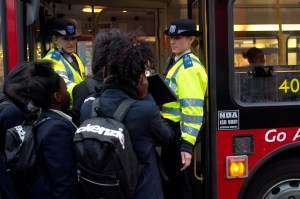British MPs voted against bans on spies and other state operatives from carrying out crimes such as murder, torture and rape.
The Covert Human Intelligence Sources (Criminal Conduct) Bill is supposed to provide a legal framework for activity carried out by “Covert Human Intelligence Sources”, but critics say that it simply legalises any crimes that may be committed by spies. The bill places no expressed limits on the types of crimes that can be authorised.
Videos by VICE
The bill passed its third reading in the House of Commons on Thursday by 313 votes to 98. The Labour Party submitted a number of amendments to the bill, to limit the crimes that could be authorised, including preventing child informants being used and committing crimes to infiltrate trade unions. All of these were voted down.
With its amendments defeated, Labour MPs were whipped to abstain on the bill, as the party argued that voting against it would weaken national security. However 34 Labour MPs rebelled to vote against the bill. Shadow ministers Dan Carden and Margaret Greenwood voted against the bill and resigned from the front-bench.
In his resignation letter to Labour leader Keir Starmer, Dan Carden said: “I share the deep concerns about this legislation from across the labour movement, human rights organisations, and so many who have suffered the abuse of state power, from blacklisted workers to the Hillsborough families and survivors.”
Five of the Labour MPs voted against the bill also resigned their roles as parliamentary private secretaries.
The bill will now proceed to the House of Lords for further scrutiny.
A join statement from 14 trade unions, 20 MPs and a number of human rights organisations urging votes against the bill noted, “there has been a documented history of state surveillance of lawful trade union activity and justice campaigns in recent years, including apparent links with the criminal blacklisting of trade union members. We are also alarmed by the conduct of undercover police in pursuing surveillance of legitimate civil society organisations including anti-racist organisations, family justice campaigns and environmental groups.”
Critics say the passing of the bill would mean that victims of the “spycops” scandal, which saw undercover police officers infiltrate social justice and environmental campaigns, would be unable to seek redress. Officers using false personas entered into intimate relationships with activists, even fathering children with people who had no idea that their partner was a police officer.
Kate Allen, director of Amnesty International UK, said: “It’s hugely worrying that we’re a step closer to seeing this deeply dangerous bill become law. MPs are signing off on a licence for government agencies to authorise torture and murder. Giving such disturbing powers to bodies including MI5 and the police could have devastating impacts.
“We are now urging peers who care about the rule of law to introduce urgent amendments before the bill progresses further through Parliament.”






